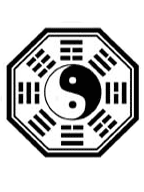
In a recent article, the deputy director of China’s
environmental protection agency expressed that traditional Chinese belief
systems could help the country to remedy the environmental impact of its
aggressive Western style of economic development. The article in The Western
Confucian, surprisingly tolerated by officially atheist Beijing, indicates that
the teachings of Confucius, Taoism and Buddhism all speak of the balance between
humanity and nature.
Worldwide there is a movement amongst scientists, policymakers environmentalists
and religious leaders to find practical solutions to our environmental woes.
Throughout history, societies with a transcendent vision of life have understood
that humanity exists within Nature, is a part of the natural world. We are not
simply consumers of the Earth’s resources, thoughtlessly taking as much as we
want. All spiritual traditions recognize that humanity is the steward of the
Earth. We are responsible for caring for the planet and all that dwells therein.
Nature is recognized to be intelligent, an example of harmonious co-existence
and interdependence. In order for society to flourish and for each human being
to fulfill individually, we must learn to balance ourselves and the development
of our societies in accordance with Nature.
Pythagoras said, “Nature is wise.” Let us develop ourselves and our societies
sustainably, (including our economies) in accordance with the wisdom of Nature:
with harmony, beauty, generosity, and great care.